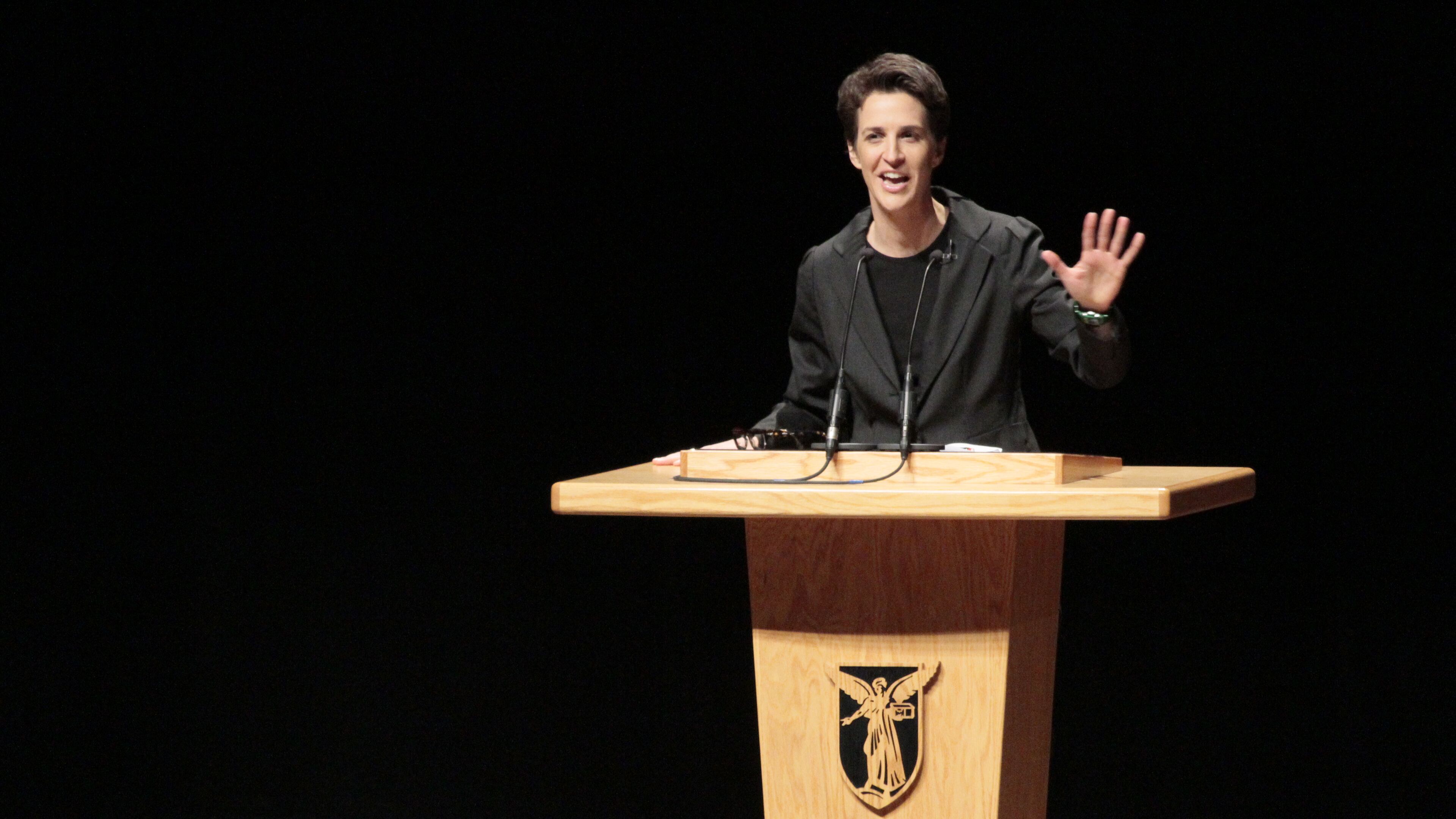2013 flashback: Rachel Maddow regales ‘blue’ crowd at Atlanta Symphony Hall

Originally posted March 24, 2013 by RODNEY HO/rho@ajc.com on his AJC Radio & TV Talk blog
MSNBC host Rachel Maddow signed 1,800 copies of the soft-cover version of her No. 1 New York Times best-seller "Drift: The Unmooring of American Military Power" for an adoring, sold-out Atlanta Symphony Hall last night.
No, they didn't actually watch her sign those books. She did that before hand. Rather, Maddow summarized the treatise of her book and took questions from the audience.
Former Sen. Max Cleland introduced Maddow, without cue cards or notes. His admiration for her was obvious. 'Thank you for inspiring so many people," he said. And the feeling was mutual.
"When he wanted to introduce me," Maddow told the audience, "I passed out a little bit. He gives the idea of public service real meaning. He is truly a selfless public servant."
Maddow said upfront she is not a pacifist. Her book isn't an argument against the military.
"I don't believe war is the single worst option," she said.
Rather, it's her argument that presidents going back to Lyndon B. Johnson in the 1960s have created policies that shield military action from the public, by circumventing Congress through executive orders, by using private contractors, by relying on a smaller percentage of the populace to fight our wars.
She said there were 2.6 million deployments to Iraq and Afghanistan over the past ten years, courtesy of just 1.1 million servicemen and women.
"We've changed the way to go to war by making it less of a hassle," she said. No more draft. Making war expenditures "emergency allocations." Having the FBI secretly use drones.
And she was galled when Pres. George W. Bush and Congress passed tax cuts a decade ago as we were going into war, giving the public the impression it was "all free."
She also said in talking to members of the military who have been deployed so many times, the last thing they want from the public is pity and fear.
Those, she said, are reactions of "objectification" that lead to alienation, as if the average person cannot quite connect with what a veteran or active duty military has been through. "We are paying the least attention to those who make the most sacrifices," she said.
Maddow did say she wrote the book not because this was an irreversible trend. She wants people to understand what's going on and lobby to make decisions about war more transparent to the public.
She noted that the Founding Fathers in the 1700s chafed at subsidizing the massive British military complex and made sure that there was a proper balance of power so presidents couldn't jump into military action so easily.
Going to war, she said, has been a collective duty of a nation and not something to be trifled with.
She then took questions. When someone asked if she'd run for political office, the crowd went wild for 30 seconds.
"Something awesome just happened," Maddow observed. "Someone in the front row turned around and took pictures of you guys."
She said she has no intention to run for office. Everyone in the audience simply agrees with her and wants her to do the hard work.
Maddow does feel the political landscape in states such as Texas and Georgia are changing and there are opportunities for liberals (or as she cracked, "progressives, who are liberals who can spell better.") to run for office and make a difference.
And when asked about always being referenced as gay, she said she's okay with it. She's been out since she was 17 and doesn't mind.
Plus, her obsession with getting Dick Cheney for an interview continues. (It's in the dedication of her book.)
"Does anyone in here know him?" she asked, half-jokingly. She said she would love to ask him about his justifications for Iran-Contra back in the 1980s when Reagan took part in a secret war without Congressional approval.


